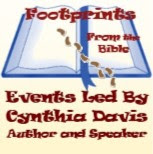I get words all day through;
First from him, now from you! Is that all you blighters can do?
Don't talk of stars Burning above; If you're in love,
Filled with desire. If you're on fire,
Show me! Here we are together in the middle of the night!
Don't talk of spring! Just hold me tight! Anyone who's ever been in love'll tell you that
This is no time for a chat! Haven't your lips
Longed for my touch? Don't say how much,
Show me! Show me! Don't talk of love lasting through time.
Make me no undying vow. Show me now!
Sing me no song! Read me no rhyme!Don't waste my time, Show me!
Don't talk of June, Don't talk of fall!
Don't talk at all! Show me!
Never do I ever want to hear another word.
There isn't one I haven't heard.
Here we are together in what ought to be a dream;
Day one more word and I'll scream!
Haven't your arms Hungered for mine?
Please don't "expl'ine," Show me! Show me!
Don't wait until wrinkles and lines
Pop out all over my brow, Show me now!
These words are from the musical My Fair Lady. Eliza Doolittle is singing to Freddy. Having spent hours and weeks and months being schooled in 'proper' English, she is understandably frustrated when Freddy continues to protest his love verbally, without any action.
Nouwen makes a similar observation about our world. “Words…form the floor, the walls, and the ceiling of our existence…Recently I was driving through Los Angeles, and suddenly I had the strange sensation of driving through a huge dictionary.” Words can inform, but they can also separate us because we start to tune out the noise around us, even if it is someone we care about who is talking.
I wonder what the Desert Fathers, who Nouwen suggests we look at in The Way of the Heart, would have thought of Twitter and texting and all the other ways we report on our minute by minute thoughts and events. The Desert Fathers went away into the desert to be quiet and be with God. Why is silence important to us 1500 years later? Nouwen offers a three-fold answer. Silence makes us pilgrims. Silence guards the fire within. Silence teaches us to speak.
A pilgrimage is a silent journey. It can be inward—seeking enlightenment or a real journey to a holy destination. To be on a true pilgrimage, as opposed to a trip, is to be silent so God can speak. “Speaking gets us involved in the affairs of the world,” says Nouwen. A pilgrimage into silence takes us out of the world.
Once we are on a silent, listening pilgrimage we discover the second important aspect of silence. It “is the discipline by which the inner fire of God is tended and kept alive.” Nouwen warns that too much talking and ‘sharing’ can become “more compulsive than virtuous…something precious has been taken away from us.” When we “faithfully care for the inward fire…when it is really needed it can offer warmth and light to lost travelers.”
In silence we may just find that peace which the world cannot give. Jesus promises, “But the Advocate,the Holy Spirit, whom the Father will send in my name, will teach you everything, and remind you of all that I have said to you. Peace I leave with you; my peace I give to you. I do not give to you as the world gives. Do not let your hearts be troubled, and do not let them be afraid.” (John 14:26-27) The inner fire of the Spirit is a gift from our Lord, to be nurtured in and by silence.
What is silence? How can it be found? In our wordy world these are valid questions. Silence can be a bit intimidating or even frightening. To be alone with our thoughts might reveal something we don’t want to know. We might hear a call from God that will transform us. Like this snow storm sweeping down across the desert, it can threaten to overwhelm us, because we are so used to being around words--spoken, written, texted, Facebooked, TV, etc.
The letter to the Philippians advises, “Do not worry about anything, but in everything by prayer and supplication with thanksgiving let your requests be made known to God. And the peace of God, which surpasses all understanding, will guard your hearts and your minds in Christ Jesus.” (Phil.4:6-7)
This week try to use some of your time with God to be simply silent. If you, like me, are walking, don’t take along an i-pod, just walk and enjoy the sounds of nature and offer thanksgiving to the Creator of all. If you are just taking time out during the day to spend time with God, you might sit outside or in a quiet room where there are no distractions.
Sometimes it helps to find a verse or short prayer to repeat as an aid in shutting out the outer noises (and inner ones). I often use the Jesus Prayer: “Jesus Christ, Son of the Living God, have mercy on me a sinner.” Another sentence I use is from psalms; “Be still and know that I Am God.” Breathe in on part of the sentence and out on the second half until you are less and less aware of the things around you.
Next week we will explore more of Silence, esp. the Joy of the Lord that can be found in being still in God’s presence.









